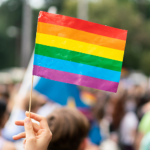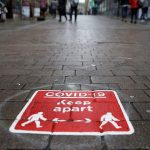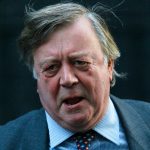The government has promised to tackle obesity and improve mental health support, but there is no sign of long-promised legislation to reform adult social care.
Boris Johnson has set out his legislative agenda for the new parliamentary session in the Queen’s Speech for “unleashing our nation’s full potential” as the UK emerges from the COVID-19 pandemic.
Follow live updates from the Queen’s Speech
“We have been given an historic opportunity to change things for the better, level up opportunities across the whole of the United Kingdom, and address the problems that have constrained us far too often before,” he said.
Proposals on social care will be “brought forward”, but there is no specific bill mentioned to tackle an issue that has bedevilled successive governments.
Upon becoming PM in 2019, Mr Johnson said he had a “clear plan” to fix the system.
Ministers have previously said that plans will be set out at some point this year.
A raft of bills were set out by Her Majesty, in what was her first major public ceremonial duty since the death of the Duke of Edinburgh last month.
The event, which is usually marked with pomp and ceremony, was scaled back because of COVID-19.
Please use Chrome browser for a more accessible video player
And rebuilding as the country emerges from the pandemic is a key focus for the government.
“My government’s priority is to deliver a national recovery from the pandemic that makes the United Kingdom stronger, healthier and more prosperous than before,” the Queen said.
“To achieve this, my government will level up opportunities across all parts of the United Kingdom, supporting jobs, businesses and economic growth and addressing the impact of the pandemic on public services.”
The Queen’s Speech also includes new laws allowing post-Brexit reforms to government procurement and state aid, a shake-up of the planning system, a bill to repeal the fixed-term parliaments act, new rules on asylum and measures to tackle voting fraud, including requiring people to provide ID when casting their ballot.
On obesity, adverts for food that is high in fat, salt and sugar will be restricted from April next year. This includes a ban on junk food adverts before the 9pm watershed and a total block online.
Plans for long-delayed online safety laws were also set out.
The Online Safety Bill will require social networks to tackle illegal content on their services and clearly define what content is not acceptable.
OFCOM will have the ability to hand out fines of up to £18m or 10% of a firm’s annual global turnover, whichever is more.
A Health and Care Bill will better integrate the NHS and social care systems, a Higher Education (Free Speech) Bill will give regulators the power to fine universities or students’ unions in England if they fail to protect freedom of expression and a Counter-State Threats Bill will introduce a US-style register of foreign agents to counter espionage and influence from hostile governments.
There is also a commitment to bring forward measures to ban conversion therapy, the practice of trying to change someone’s sexuality or gender identity.
Meanwhile, a number of other bills have also been carried over from the last parliamentary session, including the Environment Bill – which will set new, legally-binding climate targets – and the Police, Crime, Sentencing and Courts Bill, which will give police in England and Wales more powers to curtail protests.
Mr Johnson has promised to put “rocket fuel” into his “levelling up” agenda with the introduction of new laws to build on his “lifetime skills guarantee” promise first made last year.
The new Skills and Post-16 Education Bill includes:
• A new student finance system to overhaul the current student loans system, which will give every adult access to a flexible loan for higher-level education and training at university or college, useable at any point in their lives
• Employers will have a statutory role in planning publicly-funded training programmes with education providers
• More government powers to intervene in colleges that fail to meet local needs
There was no specific bill to address the legacy of the Troubles in Northern Ireland, but the PM promised that legislation would be introduced.






















